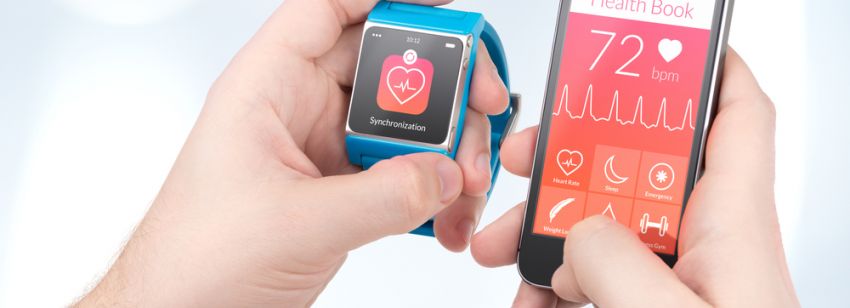Is this the future of diagnostic? – Artificial intelligence and self-learning algorithms assist the early detection of diabetes
About the author

Dipl.-Kauffrau Heike Kielhorn-Schönermark
Founder and Managing Director
Founder and Managing Director
Fon: +49 511 64 68 14 – 0
Fax: +49 511 64 68 14 18
Fax: +49 511 64 68 14 18
Wearables such as fitness bracelets as well as smartwatches are growing in popularity. While sales numbers amounted to 115.5 million wearables in 2017, they are estimated to reach 219 million in 2022. People who measure their own fitness or health status and allow for their data to be evaluated are fully in line with the current trend. Nevertheless, quite often third-party applications are used in addition, which promise a more detailed preparation of the data for a more intensive analysis. One of these applications is called cardiogram, named after the American company.
Cardiogram was founded in 2016 by the two ex-Google tech leads Johnson Hsieh and Brandon Ballinger and received the “best iPhone App” award from iMore in the same year. The app provides detailed diagrams and overviews of the current heart rate for free. For receiving full functionality, users must agree when signing up that cardiogram may use the individual data for large-scale experiments. Meanwhile, the app has more than 250,000 active users, of which 73% use the application on a daily basis. Special feature of cardiogram is a self-developed self-learning (independent of the operating system) algorithm (AI), which detects anomalies in the individual health status with the help of heart rate measurement.
In collaboration with the University of California, a study to validate the effectiveness of the algorithm has been carried out using more than 14,000 Apple Watch user data (33,628 person-weeks) and 200 million heart rate / step count measurements. The results are promising. The research shows that uthe usage of the cardiogram app in combination with an Apple Smartwatch can result in 97% accuracy in abnormal heart rhythms, 90% accuracy sleep apnea and 82% accuracy in hypertension. In addition, with an accuracy of 85% it can provide information whether a person has diabetes or not.
The results for diabetic diseases are special because on the one hand around 425 million people worldwide suffer from diabetes according to the International Diabetes Federation, with an increasing forecast (estimation for 2045: 700 million) – on the other hand, the global number of undiagnosed cases is significantly higher (in every second case diabetes is undiagnosed (212 million people)). The early discovery of the disease outside of the medical / clinical setting by artificial intelligence could help to diagnose diabetes in early stages and thus significantly reduce potential side effects in the future.
Working closely together with its clients, the SKC Beratungsgesellschaft mbH supports the development of sustainable, digital health care solutions.
BY Heike Kielhorn-Schönermark, MBA, founder and managing director and Michèl Schikowski, M.Sc. Health Economics
Sources:
Upbeat: Ordinary wearables can flag signs of diabetes, according to new Cardiogram study
DeepHeart: Semi-Supervised Sequence Learning for Cardiovascular RiskPrediction
t3n: Studie: Apple Watch kann Diabetes mit einer Genauigkeit von 85 Prozent erkennen (German only)
cardiogr.am
Diabetes online: Aktuelle Zahlen zur globalen Diabetes-Pandemie (German only)
Statista: Absatz von Wearables weltweit nach Hersteller in den Jahren 2014 bis 2017 (German only)
